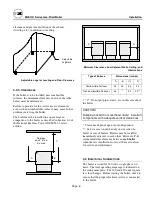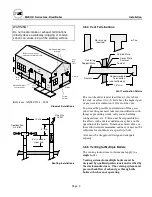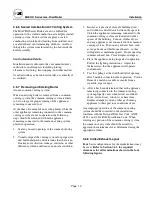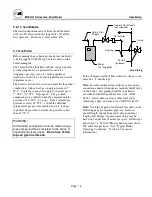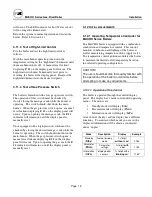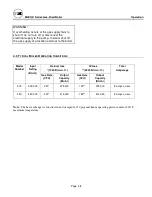
MACH® Series
Gas-Fired Boiler
Installation
Page 17
untreated make-up water will cause premature failure
due to buildup of scale; such failure is not covered by
warranty.
Scale can also reduce efficiency. For example, a scale
thickness of 1/16" will result in a 12.5% loss of
efficiency.
Water pH
The pH of the hydronic system fluid must be between
6.0 and 8.5. A periodic check of the system pH should
be conducted to ensure these pH levels are maintained.
IMPORTANT!
Glycol and other additives must be approved by
the chemical manufacturer for use in aluminum
boilers and must meet the required pH levels
listed above to prevent damaging the boiler.
The water quality should be within the guidelines
established by the American Boiler Manufacturers
Association, as follows:
Total solids:.................................. 2,500 ppm
Total hardness:................................ 150 ppm
The amount of oils, fats, grease, and other organic
matter should be limited to 10 ppm.
Consult your water conditioning or chemical treatment
supplier for analysis and recommendations.
Flushing the System
Before filling the boiler, flush the system to remove
any debris from construction or maintenance. Clean
and flush old piping thoroughly before installing the
boiler.
IMPORTANT!
Under no circumstances should the hydronic
system be flushed while the boiler is attached to
the system since the debris or corrosion products
could accumulate in the boiler and plug the boiler
heat exchanger.
IMPORTANT!
If the piping system attached to this unit will be
chemically cleaned, the boiler must be
disconnected from the system and a bypass
installed so that the chemical cleaning solution
does not circulate through the boiler. Following
chemical cleaning, the system should be
thoroughly rinsed to remove cleaning agents
prior to reconnecting the boiler to the system.
Filling
To be sure that the boiler is not air-bound, open the
pressure-relief valve located at the rear of the boiler.
Leave the relief valve open until a steady flow of
water is observed. Close the valve and finish filling
the system.
3.9
B
URNER AND
I
GNITION
S
YSTEM
3.9.1 Inspection
Inspect the unit to be sure nothing was damaged or
knocked loose during shipment. Since some damage
may be hidden, remove the top cover and inspect the
boiler.
Inspect the gas train, blower, ignition electrode and
boiler in general to be sure there was no damage
during shipment or installation.




